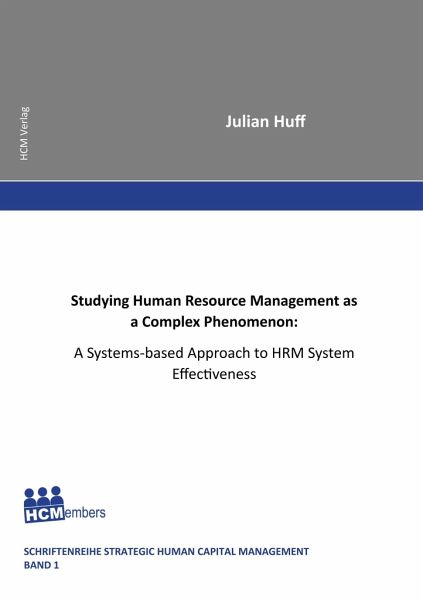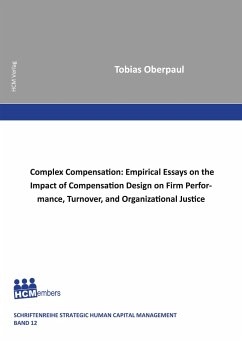
Studying Human Resource Management as a Complex Phenomenon: A Systems-based Approach to HRM System Effectiveness
Versandkostenfrei!
Versandfertig in 1-2 Wochen
11,99 €
inkl. MwSt.

PAYBACK Punkte
0 °P sammeln!
Human resource management (HRM) research indicates that HRM activities interact and reinforce each other in their impact on people and organizations; they are thus designed and studied as holistic systems. In this dissertation, systems theory is utilized to explore the interactive nature of HRM effectiveness. In the first study, a causal model is developed that explains and elaborates on the assumed interaction effects. The second study integrates popular theoretical approaches of HRM effectiveness with systems theory, and develops a systems-behavioral model that explains how interaction emerg...
Human resource management (HRM) research indicates that HRM activities interact and reinforce each other in their impact on people and organizations; they are thus designed and studied as holistic systems. In this dissertation, systems theory is utilized to explore the interactive nature of HRM effectiveness. In the first study, a causal model is developed that explains and elaborates on the assumed interaction effects. The second study integrates popular theoretical approaches of HRM effectiveness with systems theory, and develops a systems-behavioral model that explains how interaction emerges and manifests as an effect of the organization's management system. In the third study, regression analysis is compared to neural networks, which are increasingly recognized as a research tool for complex organizational problems. Neural networks are introduced and evaluated, and extended by tools that examine interactions empirically; moreover, an ideal-type research approach is presented that combines the benefits of regression and neural network-based methodologies. Through integrating theoretical, methodological and practical considerations, the dissertation provides a comprehensive overview on HRM system effectiveness, applicable methodological tools to conceptualize and study interaction effects , and useful insights on how to leverage interaction in management practice.












